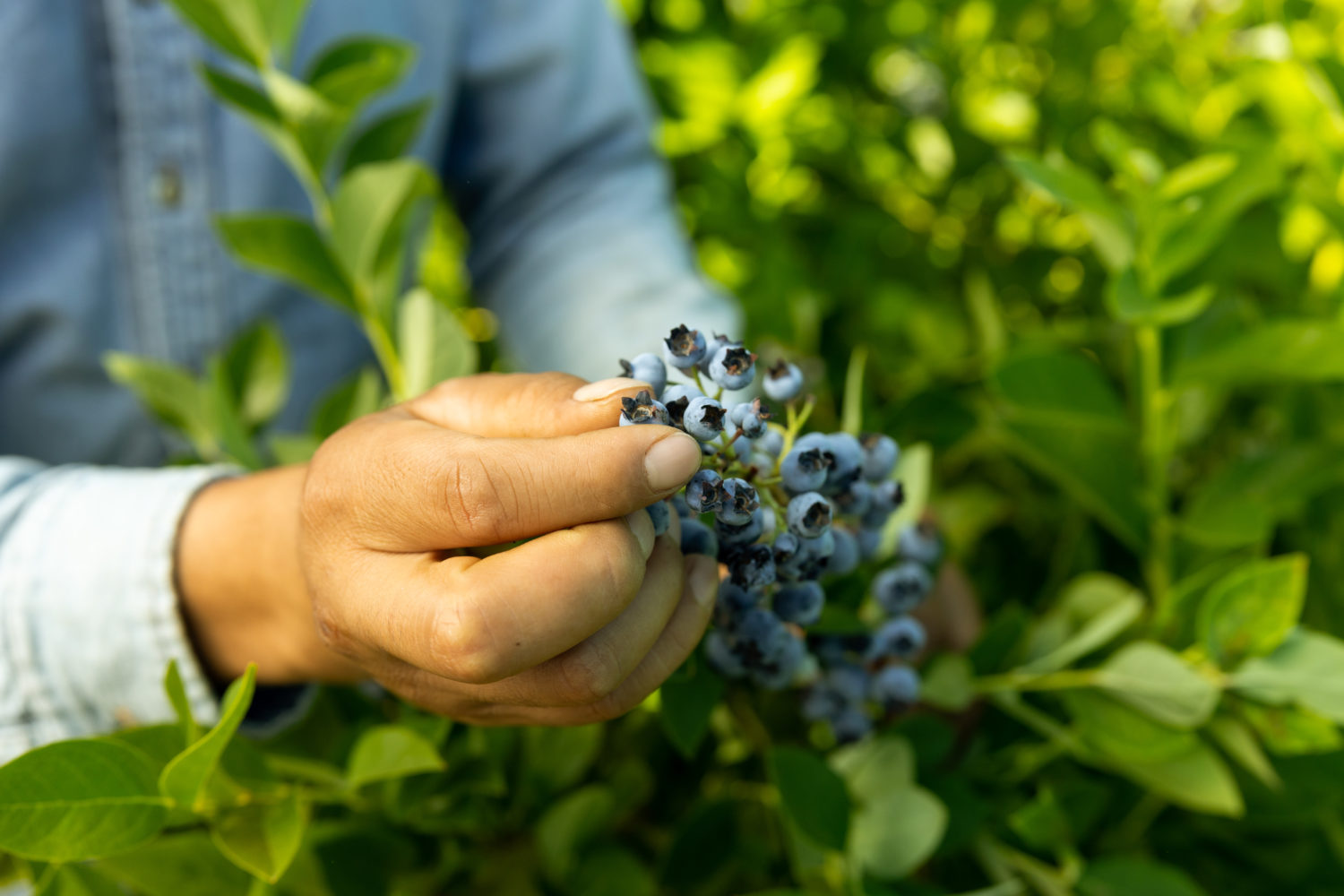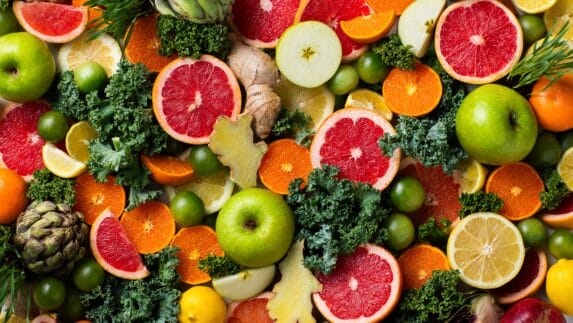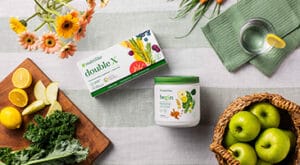Harvesting is a key step in any farming endeavor, especially so when growing botanicals for Nutrilite supplements.
At the organic Nutrilite Farm in Trout Lake, Washington, those botanicals include blueberries. How does the farm team know when they are ready?
Tapping into years of experience, they look for the precise shade of blue on a ripening berry and they run tests on the sugar content looking for ideal levels. But Danielle Kruse, farm manager at Trout Lake West, said there’s another tried and true way: “Mainly you just taste it.”
The power of blue
Who wouldn’t want that job? The Nutrilite farm team knows that blueberries are a powerhouse of nutrients that give your body much needed antioxidants and beneficial plant nutrients. But they haven’t forgotten that they’re also a sweet treat to pop into your mouth.
In fact, more people should be eating blueberries and other blue and purple produce. Research shows that of all the colors of plant nutrients, blue and purple are the least consumed globally. That means many people are missing out on key phytonutrients that have been shown to support vascular health, cognitive health and eye health.
Trout Lake West has four acres dedicated to the little berries, which are destined for Nutrilite supplements like Nutrilite Double X, Concentrated Fruits and Vegetables and Nutrilite Kids Multivitamin Gummies.
Ideal growing climate
The farm, tucked into an organic valley in the Cascade Mountains, has ideal growing conditions for blueberries as well as echinacea, dandelion and valerian: mild summer days and nights that are cooled by the glacier on nearby Mt. Adams.
In general, it’s about 10 degrees cooler than its counterpart Trout Lake East. In a warmer climate with hot days, the berries would be at risk for sun damage. At Trout Lake West, the glacier takes care of that, Danielle said.
“The cold air comes down off the mountain and into the valley at night,” she said. “It ultimately gives us a sweeter, better fruit. Extreme heat can damage this sensitive fruit.”
Blueberry bushes can produce fruit for up to 30 years and the bushes at Trout Lake are 3-15 years old. The bush varieties were specifically chosen for their high yield and nutrient-rich berry. One bush will produce several hundred berries that are rich in anthocyanins, the antioxidants that give blueberries their vibrant purple-blue color and provide several benefits that support your health.
Nurturing the fruit
Danielle and her team take care to nurture the bushes throughout the year. They’re simple, small twigs when they’re first planted. Over the years they prune them and fertilize the soil with organic compost and sulfur to ensure the ideal growing environment for the fruit. The bushes are also treated to drip irrigation, ensuring a steady stream of just the right amount of water with no waste.
“Our drip irrigation keeps our bushes hydrated and healthy, while also helping us conserve water,” she said.
Meanwhile, they are tracking every decision made with the crop, from watering schedules to compost or fertilizer applications, keeping careful records to ensure traceability and long-term success of the plants and soil.
Bye-bye, birdie
In June, after the bush has blossomed and the fruit begins to form, they also cover the fields with 12-foot-high netting to protect the crop from hungry birds looking for a meal. “The birds really love them, so we put it up temporarily and then take it down after harvest,” she said.
Once the fruit passes the taste test (among others), it’s time for harvest. A shaker comes through and harvests the fruit, filling up plastic tote after plastic tote with the blue superfood. The totes are immediately taken to the onsite freezer.
That fast freezing means the nutrients are locked in for their journey to processing and their eventual destination of Nutrilite supplements.
To learn more about our farms visit nutrilitetraceability.com.
* Unless indicated on the product label, Nutrilite products and ingredients are not organic.




